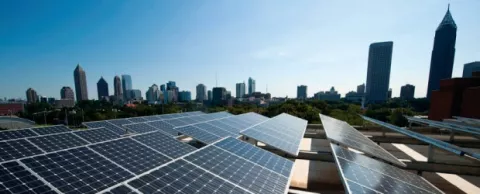
Scroll down for quick news takes and developments involving Smart Cities Council Partners.
Enel to co-develop South Australia solar farm
Council Global Lead Partner subsidiary Enel Green Power Australia has been awarded a 15-year support agreement to build a solar farm in partnership with a local developer. The agreement was awarded by the state of Victoria and will generate 77 GWh per year when it is connected to the local distribution grid. Construction is expected to begin in the first half of 2019.
Verizon launches 5G broadband internet
Council Lead Partner Verizon will launch what the company says is the world's first commercial 5G broadband internet service on October 1. Verizon 5g Home will initially be available in parts of Houston, Indianapolis, Los Angeles and Sacramento.
Telensa recognized for market leadership
Navigant Research has named Council Lead Partner Telensa as a global leader in smart street lighting. The company provides wireless smart city control systems, with an emphasis on smart street light solutions. The ranking of street lighting suppliers was based on 10 criteria, including market and product strategy, partners, product features and geographic reach.
Lendlease takes a major step into renewables
Council Global Lead Partner Lendlease, better known for its property and infrastructure projects, will build a 200 MW solar farm in Texas. When the plant is operational in March 2020 it will deliver electricity to Houston-based Center Point Energy. The plant is expected to generate enough power to supply 40,000 homes. While it's not the first solar project for Lendlease, it will be the company's largest.
Hitachi to take part in French autonomous train project
The French government and state-owned railway SNCF will develop autonomous trains with Council Global Lead Partner Hitachi Italian subsidiary Ansaldo STS as one of the project participants. The trains will have operators on board but will handle acceleration and deceleration themselves when they begin service in 2023.. The railway plans to expand the project later to its intercity high-speed service in 2025 and add completely autonomous trains later that year.
Doug Peeples is a Portland, Oregon-based writer specializing in technology and energy. Follow @smartccouncil on Twitter.



